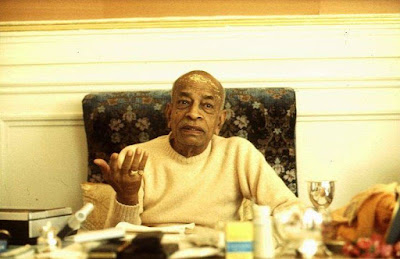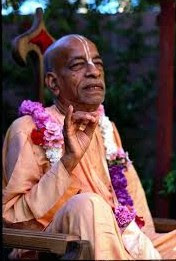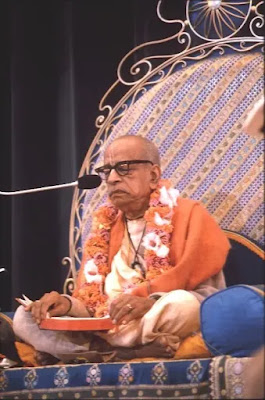To see the Lord 4. - We are accustomed to see the material things

„So without a thing being existing in the Absolute Truth, how that can be manifested in this relative truth? This world is relative truth. So there is everything, but only one has to understand what is that everything. That everything is spiritual, and this is material. When it is said that He's sarvendriya-vivarjitam, that means He has no material senses. He has got senses. He has got eyes, He has got hands, legs, everything, but they are not material. But a man with poor fund of knowledge, they cannot understand that without material body, how there can be possible of possessing a body. Because we are accustomed to see the material things, we have no eyes to see spiritual, ataḥ śrī-kṛṣṇa-nāmādi na bhaved grāhyam indriyaiḥ (CC Madhya 17.136). Therefore Kṛṣṇa, to benefit us, to become merciful upon us, He appears in this form, arcā-vigraha, so that we can see Him. Because we have learned to see wood, stone, earth, some solid materials. We cannot see subtle things. Just like every


